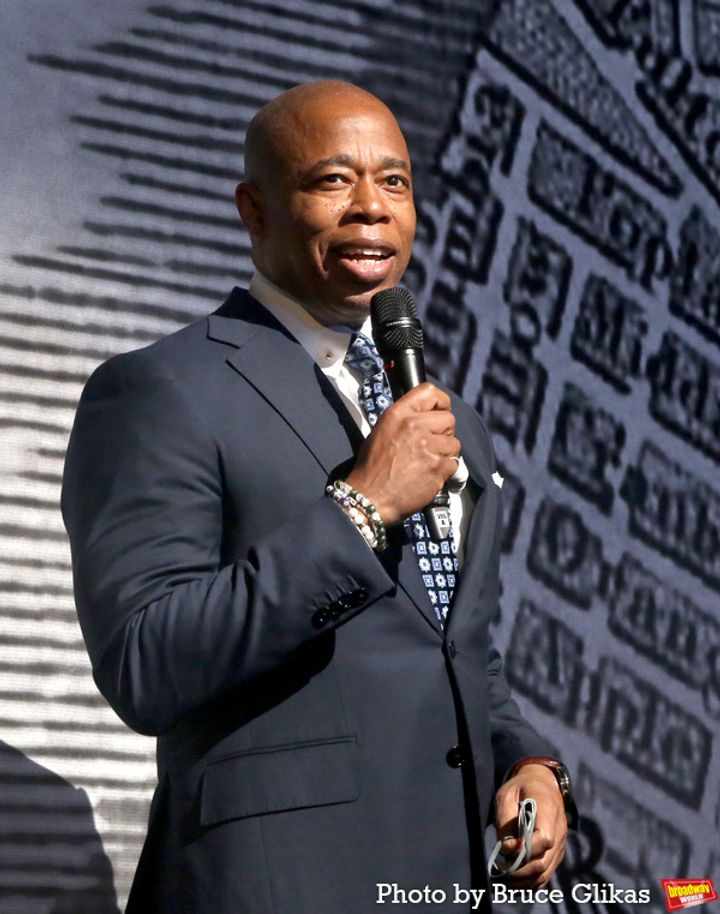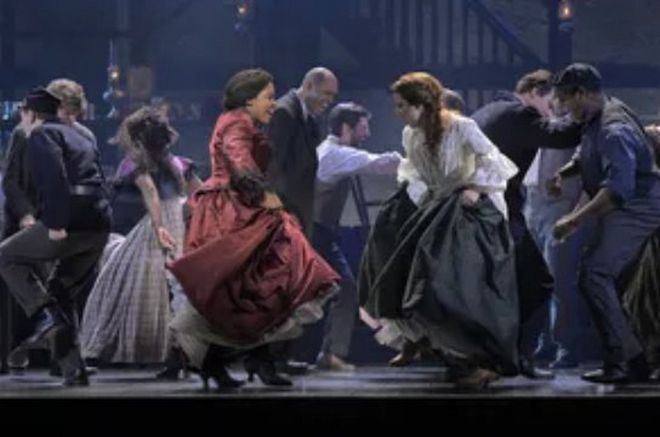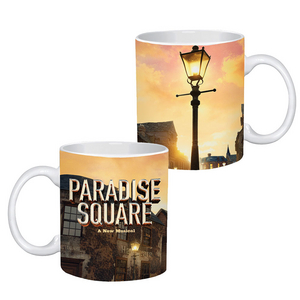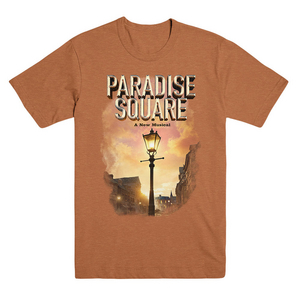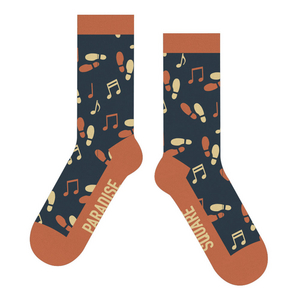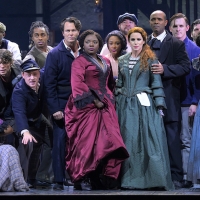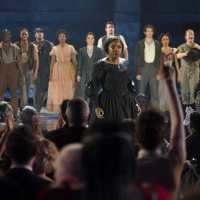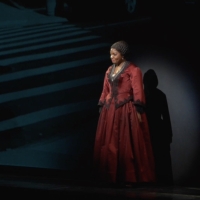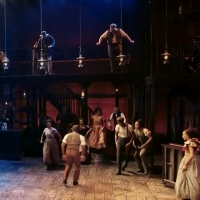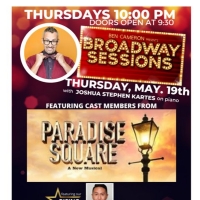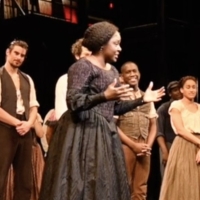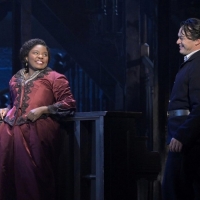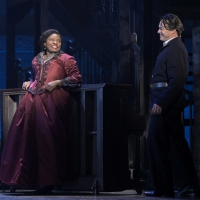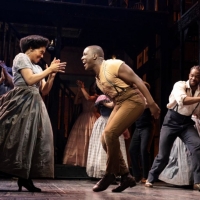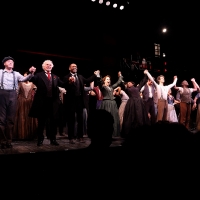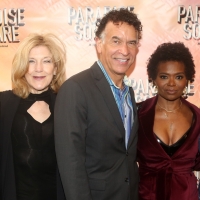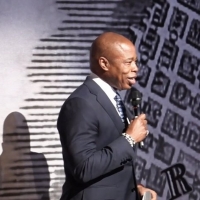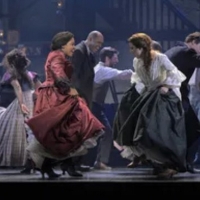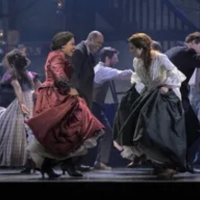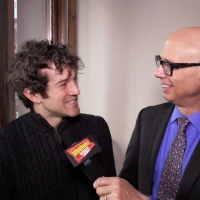Paradise Square - 2022 Broadway History , Info & More
Ethel Barrymore Theatre (Broadway)
243 West 47th St. New York, NY
New York City. 1863. The Civil War raged on. An extraordinary thing occurred amid the dangerous streets and crumbling tenement houses of the Five Points, the notorious 19th-century Lower Manhattan slum. Irish immigrants escaping the devastation of the Great Famine settled alongside free-born Black Americans and those who escaped slavery, arriving by means of the Underground Railroad. The Irish, relegated at that time to the lowest rung of America's social status, received a sympathetic welcome from their Black neighbors (who enjoyed only slightly better treatment in the burgeoning industrial-era city). The two communities co-existed, intermarried, raised families, and shared their cultures in this unlikeliest of neighborhoods.
Paradise Square - 2022 - Broadway Cast
FEATURED REVIEWS FOR Paradise Square
Review: In ‘Paradise Square,’ Racial Harmony Turns to Discord
4 / 10
In that combination, I feel the meaty hand of the producer Garth H. Drabinsky, who seems to have used his influence to shape “Paradise Square” into a likeness of his previous hits. Like “Ragtime” in 1998 and the 1994 revival of “Show Boat,” it frames social unrest as the product of a few representative individuals and tries to fill the inevitable gaps with big sound and stagecraft. It also borrows a famous plot device from “Show Boat” — which is effective here even if the debt goes otherwise unpaid. But unlike those musicals, which were built on the frames of strongly written novels by authors with singular voices, “Paradise Square” feels almost authorless despite its many contributors, and the direction of Moisés Kaufman, known for a strong hand and conceptual coherence, does little to erase the impression of anonymity. (The design elements are likewise merely efficient.) Contingent and anxious, the show seems more interested in saying the right things than in telling a coherent story.
Paradise Square Review: Black and Irish New Yorkers In Love and Dance and Death
4 / 10
There are pleasures in 'Paradise Square.' The terrific dancing tells its own story, a quintessential American (and Broadway) one: How African-American and Irish immigrant dancers learned from one another in New York and created a unique American art form - tap dancing. But 'Paradise Square' was largely a disappointment. By the end of its overlong running time, it felt overcrowded and overbearing; its staging too often of the stand in a line at the lip of the stage and stare school of emoting; its score loud, strident and insistent - well-sung, but not especially memorable and not much integrated with the story; its story of dubious historical accuracy and by-the-numbers plotting.
BUY Paradise Square - 2022 - Broadway MERCH & SOUVENIERS
Category
Paradise Square History
Other Productions of Paradise Square
| 2019 | San Francisco (Regional) |
World Premiere Berkeley Production San Francisco (Regional) |
| 2022 | Broadway |
Original Broadway Production Broadway |
Paradise Square - 2022 Broadway Awards and Nominations
| Year | Ceremony | Category | Nominee |
|---|---|---|---|
| 2022 | Drama Desk Awards | Outstanding Actress in a Musical | Joaquina Kalukango |
| 2022 | Drama Desk Awards | Outstanding Choreography | Bill T. Jones |
| 2022 | Drama Desk Awards | Outstanding Music | Jason Howland |
| 2022 | Drama Desk Awards | Outstanding Wig and Hair | Matthew B. Armentrout |
| 2022 | Drama League Awards | Distinguished Performance Awards | Joaquina Kalukango |
| 2022 | Outer Critics Circle Awards | Outstanding Actress in a Musical | Joaquina Kalukango |
| 2022 | Outer Critics Circle Awards | Outstanding Choreography | Bill T. Jones |
| 2022 | Outer Critics Circle Awards | Outstanding Choreography | Alex Sanchez |
| 2022 | Outer Critics Circle Awards | Outstanding Choreography | Garrett Coleman |
| 2022 | Outer Critics Circle Awards | Outstanding Choreography | Jason Oremus |
| 2022 | Outer Critics Circle Awards | Outstanding Director of a Musical | Moisés Kaufman |
| 2022 | Outer Critics Circle Awards | Outstanding Featured Actor in a Musical | A.J. Shively |
| 2022 | Outer Critics Circle Awards | Outstanding New Broadway Musical | Paradise Square |
| 2022 | Outer Critics Circle Awards | Outstanding Orchestrations | Jason Howland |
| 2022 | Outer Critics Circle Awards | Outstanding Score | Jason Howland |
| 2022 | Tony Awards | Best Book of a Musical | Christina Anderson |
| 2022 | Tony Awards | Best Choreography | Bill T. Jones |
| 2022 | Tony Awards | Best Costume Design of a Musical | Toni-Leslie James |
| 2022 | Tony Awards | Best Lighting Design of a Musical | Donald Holder |
| 2022 | Tony Awards | Best Musical | Paradise Square |
| 2022 | Tony Awards | Best Original Score (Music and/or Lyrics) Written for the Theatre | Jason Howland |
| 2022 | Tony Awards | Best Original Score (Music and/or Lyrics) Written for the Theatre | Jason Howland |
| 2022 | Tony Awards | Best Performance by an Actor in a Featured Role in a Musical | Sidney DuPont |
| 2022 | Tony Awards | Best Performance by an Actor in a Featured Role in a Musical | A.J. Shively |
| 2022 | Tony Awards | Best Performance by an Actress in a Leading Role in a Musical | Joaquina Kalukango |
| 2022 | Tony Awards | Best Scenic Design of a Musical | Allen Moyer |
Videos






